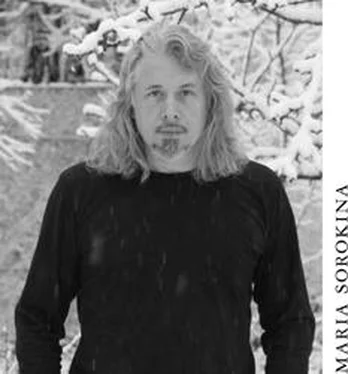Vladimir Sorokin - The Blizzard
Здесь есть возможность читать онлайн «Vladimir Sorokin - The Blizzard» весь текст электронной книги совершенно бесплатно (целиком полную версию без сокращений). В некоторых случаях можно слушать аудио, скачать через торрент в формате fb2 и присутствует краткое содержание. Год выпуска: 2009, ISBN: 2009, Издательство: Farrar, Straus and Giroux, Жанр: Старинная литература, на английском языке. Описание произведения, (предисловие) а так же отзывы посетителей доступны на портале библиотеки ЛибКат.
- Название:The Blizzard
- Автор:
- Издательство:Farrar, Straus and Giroux
- Жанр:
- Год:2009
- ISBN:9780374709396
- Рейтинг книги:4 / 5. Голосов: 1
-
Избранное:Добавить в избранное
- Отзывы:
-
Ваша оценка:
- 80
- 1
- 2
- 3
- 4
- 5
The Blizzard: краткое содержание, описание и аннотация
Предлагаем к чтению аннотацию, описание, краткое содержание или предисловие (зависит от того, что написал сам автор книги «The Blizzard»). Если вы не нашли необходимую информацию о книге — напишите в комментариях, мы постараемся отыскать её.
The Blizzard — читать онлайн бесплатно полную книгу (весь текст) целиком
Ниже представлен текст книги, разбитый по страницам. Система сохранения места последней прочитанной страницы, позволяет с удобством читать онлайн бесплатно книгу «The Blizzard», без необходимости каждый раз заново искать на чём Вы остановились. Поставьте закладку, и сможете в любой момент перейти на страницу, на которой закончили чтение.
Интервал:
Закладка:
“I c’d go to sleep now,” Crouper said with a hint of complaint in his voice as he turned his tea glass upside down.
“Go on, love.” The miller’s wife took the thimble off her finger and placed it upside down on the overturned glass. “There’s a pillow and a blanket atop the stove.”
“Mighty grateful, Tais’ Markovna.” Crouper bowed to her and climbed up on top of the tile stove.
The doctor and the miller’s wife remained alone at the table.
“So then, you do your doctoring in Repishnaya?” she inquired.
“Yes, in Repishnaya.” The doctor took a gulp of tea.
“Is it hard?”
“Sometimes. When people are sick frequently—it can be difficult.”
“And when is the sickness greater? In winter?”
“Epidemics happen in the summer, too.”
“Epidemics,” she repeated, shaking her head. “We had one about two years back.”
“Dysentery?”
“That’s it. Something got into the river. The kids swimming took sick.”
The doctor nodded. There was clearly something about the woman sitting opposite him that excited him. He looked her over furtively, a bit at a time. She sat calmly, a little smile on her face, and regarded the doctor as if he were a distant relation who’d stopped by when he saw the lights on. She didn’t seem particularly interested in the doctor and spoke with him the same way she did with Crouper and Avdotia.
“Is it boring for you here in winter?” asked Platon Ilich.
“A bit.”
“Summer’s probably fun, no?”
“Oh, summer…” She raised her hands. “Summer is bustling, something every which way you turn.”
“People bring their grain to the mill?”
“Of course they do!”
“Are the other mills far from here?”
“Twelve versts, in Dergachi.”
“So there’s plenty of work.”
“There’s plenty of work,” she repeated.
They sat in silence. The doctor drank tea, the miller’s wife played with the end of her kerchief.
“Should we watch the radio?” she suggested.
“Why not,” said the doctor, smiling.
He really didn’t want to say goodnight to this woman and go upstairs to sleep. The miller’s wife rose and took a knitted cover off the receiver, picked up the black remote control, returned to the table, turned down the lamp wick, sat back down in her chair, and pressed the red button on the remote. The radio clicked and a round hologram with a thick number “1” in the right corner appeared above them. Channel 1 had the news: a story about the reconstruction of the automobile plant in Zhiguli; another about a new single-occupancy sledmobile with a potato-fueled engine. The miller’s wife switched to Channel 2. A regular church service was on. The miller’s wife crossed herself and glanced at the doctor. He stared indifferently at the middle-aged priest in raiment and the young deacons. She turned to the last channel, Channel 3, the entertainment channel. They were showing a concert, as always. First, two beauties in sparkling traditional headgear sang a duet about a golden grove. Then a jolly, broad-faced fellow, winking and clucking, sang about the cunning intrigues of his indefatigable, atomic mother-in-law, causing the miller’s wife to laugh a few times, and a weary smirk to appear on the doctor’s face. Then the young men and girls began a long dance on the deck of the Yermak , a steamship sailing down the Yenisei River.
The doctor dozed.
The miller’s wife turned the set off.
“I can see you’re tired,” she said, rearranging the scarf, which had slipped off her shoulder.
“I’m … not … the least … bit … tired,” the doctor mumbled, shaking off his stupor.
“You’re tired, tired.” She rose. “Your eyes are shutting. It’s time for me to get some sleep, too.”
The doctor stood up. Despite his bleary drowsiness, he didn’t want to part with the miller’s wife.
“I’ll go out for a smoke.” He took off his pince-nez, wiped the bridge of his nose, and blinked his swollen eyes.
“Go ahead. I’ll get everything ready.”
The miller’s wife left, her skirts rustling.
“She’ll be upstairs,” the doctor thought, and his heart pounded. He heard two snores—one slight, Crouper, from the stove; the other, from behind the curtain, sounded like the chirr of grasshoppers.
“Her husband’s asleep … A drunken swamp rat. No, a watery drunk! A mill pond drunk!”
The doctor burst out laughing, took out a papirosa , lit it, and left the room. Passing through the cold, dark mudroom entrance, he bumped into something and had trouble finding the door to the courtyard; eventually, he pulled back the bolt and stepped outside.
It was windy, but the snow had stopped and the sky was clear; the moon shone through tufts of dark clouds. “It’s settled down,” said the doctor, puffing on his cigarette.
“We could even leave now.” He walked to the middle of the courtyard, mounds of snow crunching underfoot.
But his heart was pounding, sending jolts of hot longing through him.
“No, I’m not going anywhere…”
“Tomorrow!” he said decisively. Clenching his papirosa between his teeth, he walked over to the woodpile and relieved himself.
A dog barked in the cowshed.
The doctor quickly finished smoking and tossed the papirosa in the snow.
“Does she usually sleep with her husband on the bed behind the curtain? Where else would she sleep? So big and white, and next to her he’s like some child’s doll.”
He stood, taking in the invigorating, frosty air, and looking up at the stars that twinkled between the moving clouds. The moon peeked out and illuminated the courtyard: the storehouse, a shed, snow-capped haystacks—everything gleamed in the fresh, new-fallen snow, in myriad snowflakes. The snow-dusted courtyard and the frigid calm exuded by the wood, which, once upon a time, people had shaped and nailed together into these buildings—all this only intensified Platon Ilich’s desire. The contours of the immobile woodshed, filled with hundreds of frozen birch logs and kindling, all doomed to a brilliant death in the stove, seemed to tell him: in that house there is something warm, alive, trembling, on which the whole human world rests and upon which all its woodsheds, villages, sleds, cities, epidemics, airplanes, and trains depend. And this warmth, this femininity, awaits your desire, your touch.
Shivers ran down the doctor’s spine; he shuddered, shrugged his shoulders, exhaled, and went back into the house. Passing through the entryway, he felt for the door to the kitchen, opened it, and was immediately met with another dusky darkness. The lamp wasn’t burning, but there was a candle on the table.
“I made the bed for you upstairs,” called the voice of the miller’s wife. “Goodnight.”
Judging by the voice, she was already lying on the bed behind the curtain. Crouper and the miller were still snoring. Adding to the racket was the chirp of a real cricket, responding amusingly to the miller’s cheeps.
The doctor heaved a sigh, not knowing what to do. He wanted to ask the miller’s wife something, find an excuse to stay, but then he quickly realized how ridiculous it would seem, and, all in all, how stupid and vulgar his thoughts were. He was suddenly ashamed.
“Idiot!” he cursed himself. “Good night.”
“Don’t kill yourself on the stairs. Take the light,” came her voice, barely audible, from the darkness of the main room.
The doctor took the candle from the table and went silently upstairs. The staircase led to the attic directly from the entryway; the steps were narrow and creaked under the doctor’s boots.
“Idiot. A regular idiot!”
Upstairs there were two rooms: in the first were woven baskets, chests, boxes, strings of onion, garlic, and dried pears. The garden aroma was soothing. The doctor passed that room; the door to the other one was ajar. He found himself in a small room with a dark window, a bed, a little table, a chair, and a small dresser. The bedclothes were turned back.
Читать дальшеИнтервал:
Закладка:
Похожие книги на «The Blizzard»
Представляем Вашему вниманию похожие книги на «The Blizzard» списком для выбора. Мы отобрали схожую по названию и смыслу литературу в надежде предоставить читателям больше вариантов отыскать новые, интересные, ещё непрочитанные произведения.
Обсуждение, отзывы о книге «The Blizzard» и просто собственные мнения читателей. Оставьте ваши комментарии, напишите, что Вы думаете о произведении, его смысле или главных героях. Укажите что конкретно понравилось, а что нет, и почему Вы так считаете.












